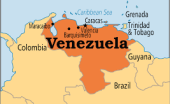Johannah Bernstein post: "eternally proud of my father’s extraordinary aeronautical engineering. legacy. here is a photo of the Canadair Water…
The 45th President of the U.S. Chapter IV
Written by Diana Thebaud Nicholson // May 9, 2019 // Politics, U.S. // Comments Off on The 45th President of the U.S. Chapter IV
9 May
Thomas L. Friedman: How to Defeat Trump
For starters, we need a patriotic Republican on the right to run as a third-party candidate
… I don’t want him impeached. He has to be voted out. Only that will restore the faith of the world that America has not lost its mind and maybe, maybe, will force a much-needed debate among Republicans.
We need a Republican third-party candidate who won’t just primary Trump but will get on the general election ballot and challenge him in 2020 in all 50 states — but do it from his right, not from the center.
Yes, we need a Republican who will do the most high-minded, patriotic thing I can imagine today — fall on the Trump grenade. That is, run against Trump from the right in the national election as, say, a libertarian — who could oppose Trump for his tariffs, his piling up of the national debt, his opposition to immigration and his immorality. This could siphon off just enough Republican votes for Trump to lose close races in Wisconsin, Michigan, Ohio, Pennsylvania, Nevada and Florida. We need a Republican who will do to Trump what Ralph Nader did to Al Gore in Florida in 2000.
Second, we need some dutiful people to bear witness. There is now a club of people who have served at the top of Trump’s administration in the past two years who either quit, because they would not bend, or were forced out after Trump could bend them no longer: Mattis, Don McGahn, H.R. McMaster, Rex Tillerson, Gary Cohn, Kirstjen Nielsen, John Kelly, Jeff Sessions and Reince Priebus. (We also need to hear from Robert Mueller.)
… Finally, most important, we need a Democratic candidate who can appeal not only to Democrats but also hold the independents, moderate Republicans and suburban women whose votes shifted the House to the Democrats in the 2018 midterm elections and whose support will be vital for any Democrat to win the presidency.
7 May
Decade in the Red: Trump Tax Figures Show Over $1 Billion in Business Losses
Newly obtained tax information reveals that from 1985 to 1994, Donald J. Trump’s businesses were in far bleaker condition than was previously known.
By RUSS BUETTNER and SUSANNE CRAIG
By the time his master-of-the-universe memoir “Trump: The Art of the Deal” hit bookstores in 1987, Donald J. Trump was already in deep financial distress, losing tens of millions of dollars on troubled business deals, according to previously unrevealed figures from his federal income tax returns.
Mr. Trump was propelled to the presidency, in part, by a self-spun narrative of business success and of setbacks triumphantly overcome. He has attributed his first run of reversals and bankruptcies to the recession that took hold in 1990. But 10 years of tax information obtained by The New York Times paints a different, and far bleaker, picture of his deal-making abilities and financial condition.
The data — printouts from Mr. Trump’s official Internal Revenue Service tax transcripts, with the figures from his federal tax form, the 1040, for the years 1985 to 1994 — represents the fullest and most detailed look to date at the president’s taxes, information he has kept from public view. Though the information does not cover the tax years at the center of an escalating battle between the Trump administration and Congress, it traces the most tumultuous chapter in a long business career — an era of fevered acquisition and spectacular collapse.
23 April
Greg Sargent: Why is Trump raging again? Because Don McGahn will further expose his corruption.
(WaPost) In the past day or so, President Trump and the White House have instructed a former official not to comply with a House subpoena as part of an investigation into the dubious handling of security clearances. They’ve launched an unusual lawsuit to block House Democrats from accessing his finances. And they’re preparing to refuse to turn over his tax returns, which will likely violate the law.
Plainly, Trump is determined to treat any and all oversight as illegitimate — even though this is a core institutional function of Congress — with the goal of keeping his seemingly bottomless corruption shielded from public view.
But his power to do this is not limitless. And this constraint is making Trump very, very angry.
Trump’s allies, led by Trump’s lawyer Rudy Giuliani, have ramped up their attacks on McGahn. The New York Times reports that they are escalating for a very specific reason: because they fear that McGahn will help build the case for Trump’s impeachment.
Trump says he is opposed to White House aides testifying to Congress, deepening power struggle with Hill
20 April
New York: The Most Important Story of the Week: On Thursday, a redacted version of Robert Mueller’s report was released, and with a chance to “review the last three years with new perspective and fresh eyes,” it’s clear that Trump must be impeached, Andrew Sullivan writes in “There Was No Russia Conspiracy. But Trump Is More Dangerous Than Ever.” In “Trump Deserves Impeachment. But Should the Democrats Do It?” Ed Kilgore argues that “ejecting him from office at the ballot box” might be the more prudent way to proceed. While we’re throwing people out of office, Jonathan Chait writes that “Congress Should Impeach William Barr.” Separately, in “Trump Beat the Rap, But Mueller Uncovered a Historic Scandal,” Chait writes that the Russia scandal is now a political matter, not a legal one. Eric Levitz adds that the “Mueller Report Confirms Trump Runs the White House Like It’s the Mafia.” And if you’re having trouble keeping track of the cast of characters and list of incidents, you may want to consult the “Mueller Encyclopedia.”
19 April
‘Whimsical, uninformed’: French ambassador’s parting verdict on Trump
(The Guardian) “It’s like [trying] to analyse the court of Louis XIV,” Araud said. “You have an old king, a bit whimsical, unpredictable, uninformed, but he wants to be the one deciding.”
Like the Sun King who dominated France in the 17th and 18th centuries, Trump “doesn’t want to appear under any influence and he wants to show it”, Araud said.
He portrayed the current situation as the opposite extreme of the meticulous though sometimes ponderous decision-making process pursued by the previous administration.
No One Listens to the President
Trump keeps issuing orders, and staffers keep ignoring them because they’re illegal or unwise. It’s an unsustainable situation—but it shows no sign of abating.
(The Atlantic) In essence, executive-branch employees are hearing orders from Trump and responding, I don’t have to listen to you—you’re just the president. On the one hand, the constitutional system depends on the president executing the law and executive-branch employees following his directives; after all, he is the elected representative of the American people, and they are civil servants. On the other hand, so many of Trump’s orders are in fact illegal or dangerous that it’s difficult to fault staffers who don’t want to endanger the country or legally expose themselves by executing them.
18 April
A Portrait of the White House and Its Culture of Dishonesty
“The White House that emerges from more than 400 pages of Mr. Mueller’s report is a hotbed of conflict infused by a culture of dishonesty — defined by a president who lies to the public and his own staff, then tries to get his aides to lie for him,” Peter Baker and Maggie Haberman write.
(NYT) Although the resulting two-year investigation ended without charges against Mr. Trump, Mr. Mueller’s report painted a damning portrait of a White House dominated by a president desperate to thwart the inquiry only to be restrained by aides equally desperate to thwart his orders.
The White House that emerges from more than 400 pages of Mr. Mueller’s report is a hotbed of conflict infused by a culture of dishonesty — defined by a president who lies to the public and his own staff, then tries to get his aides to lie for him. Mr. Trump repeatedly threatened to fire lieutenants who did not carry out his wishes while they repeatedly threatened to resign rather than cross lines of propriety or law.
9 April
Trump hotels exempted from ban on foreign payments under new stance
(The Guardian) The Department of Justice has adopted a narrow interpretation of a law meant to bar foreign interests from corrupting federal officials, giving Saudi Arabia, China and other countries leeway to curry favor with Donald Trump via deals with his hotels, condos, trademarks and golf courses, legal and national security experts say.
The so-called foreign emoluments clause was intended to curb presidents and other government officials from accepting gifts and benefits from foreign governments unless Congress consents.
But in a forthcoming article in the Indiana Law Journal, the Washington University Law professor Kathleen Clark reveals justice department filings have recently changed tack. The new interpretation, Clark says, is contained in justice filings responding to recent lawsuits lodged by attorneys generals and members of Congress.



